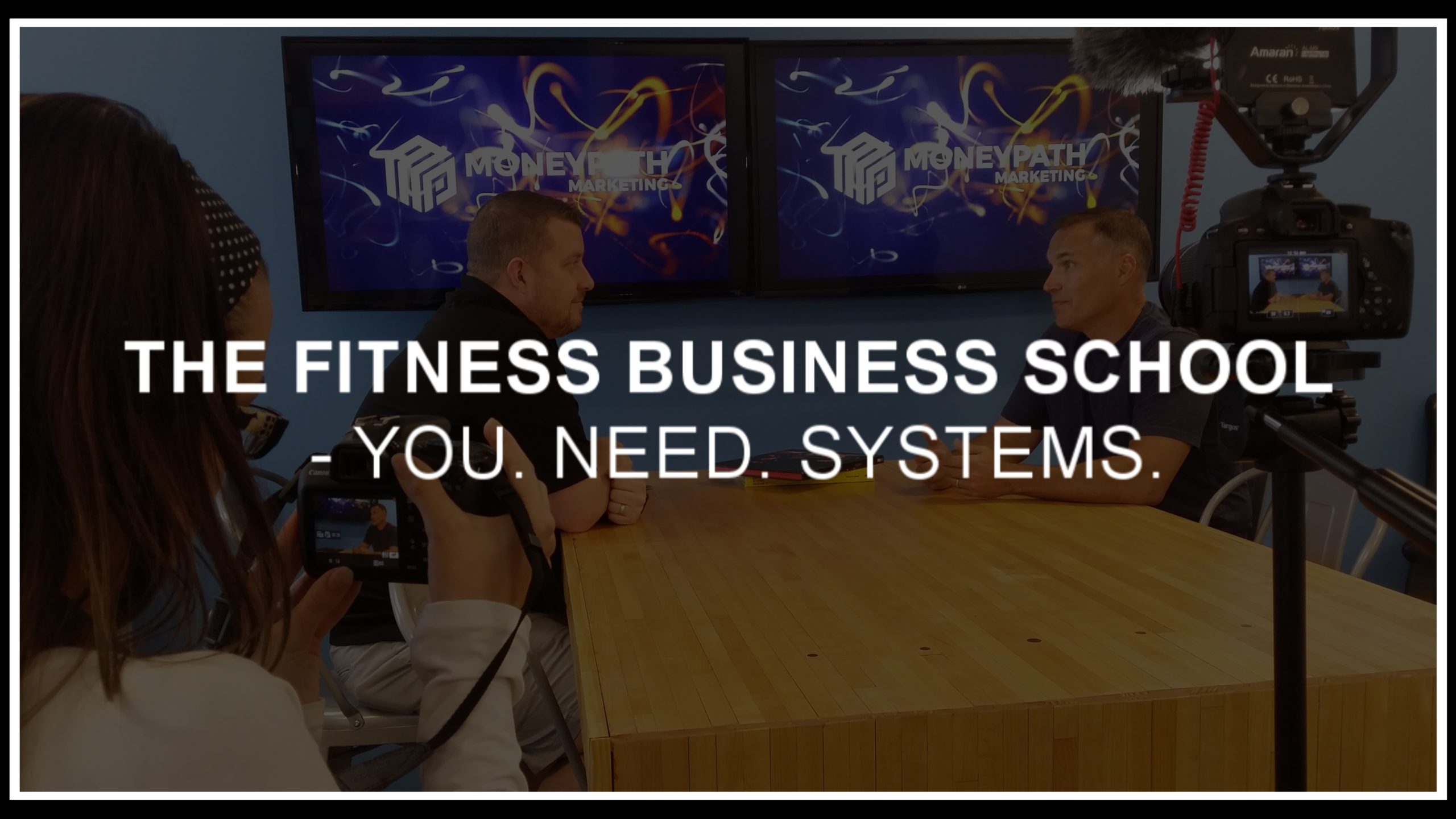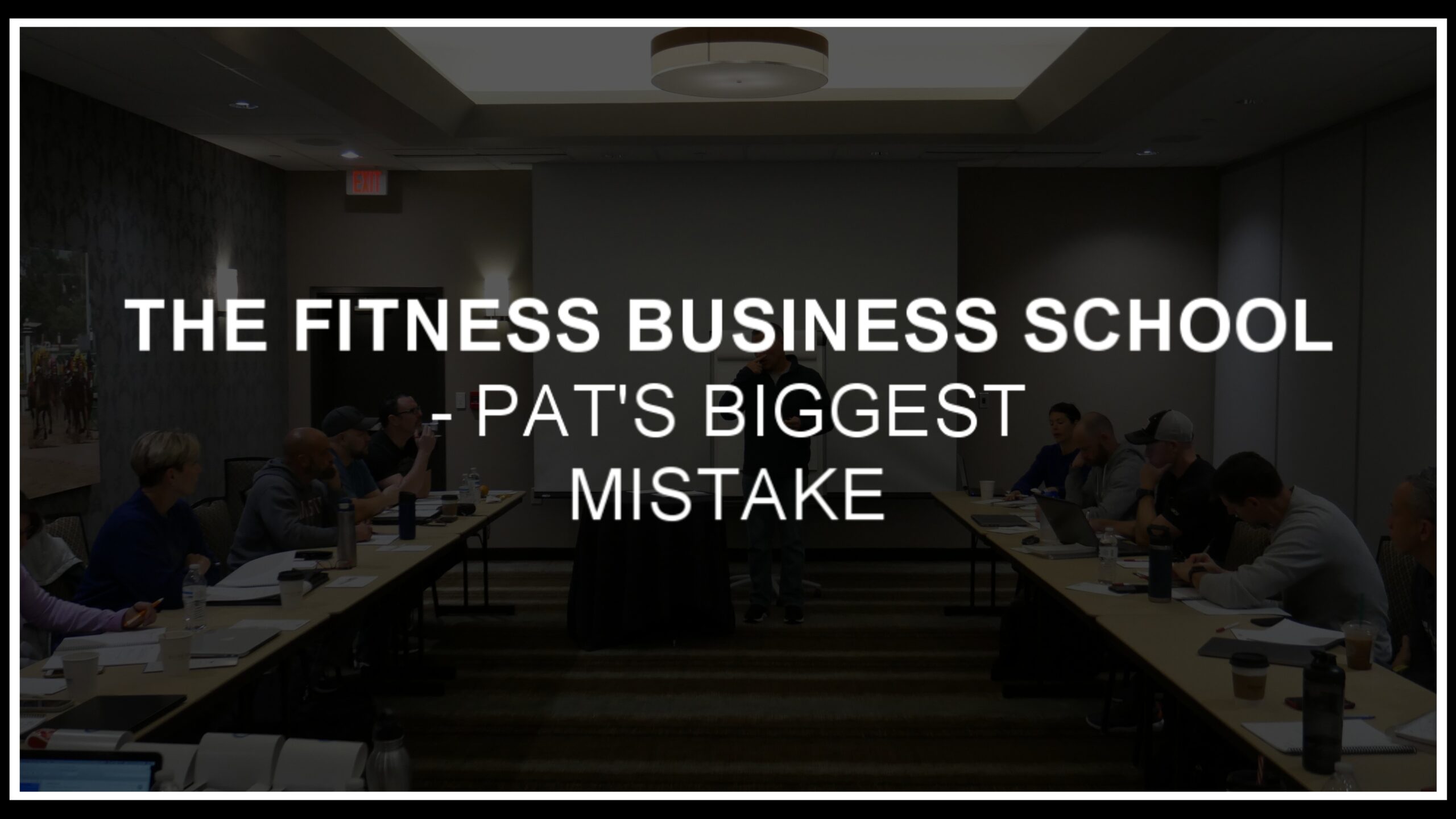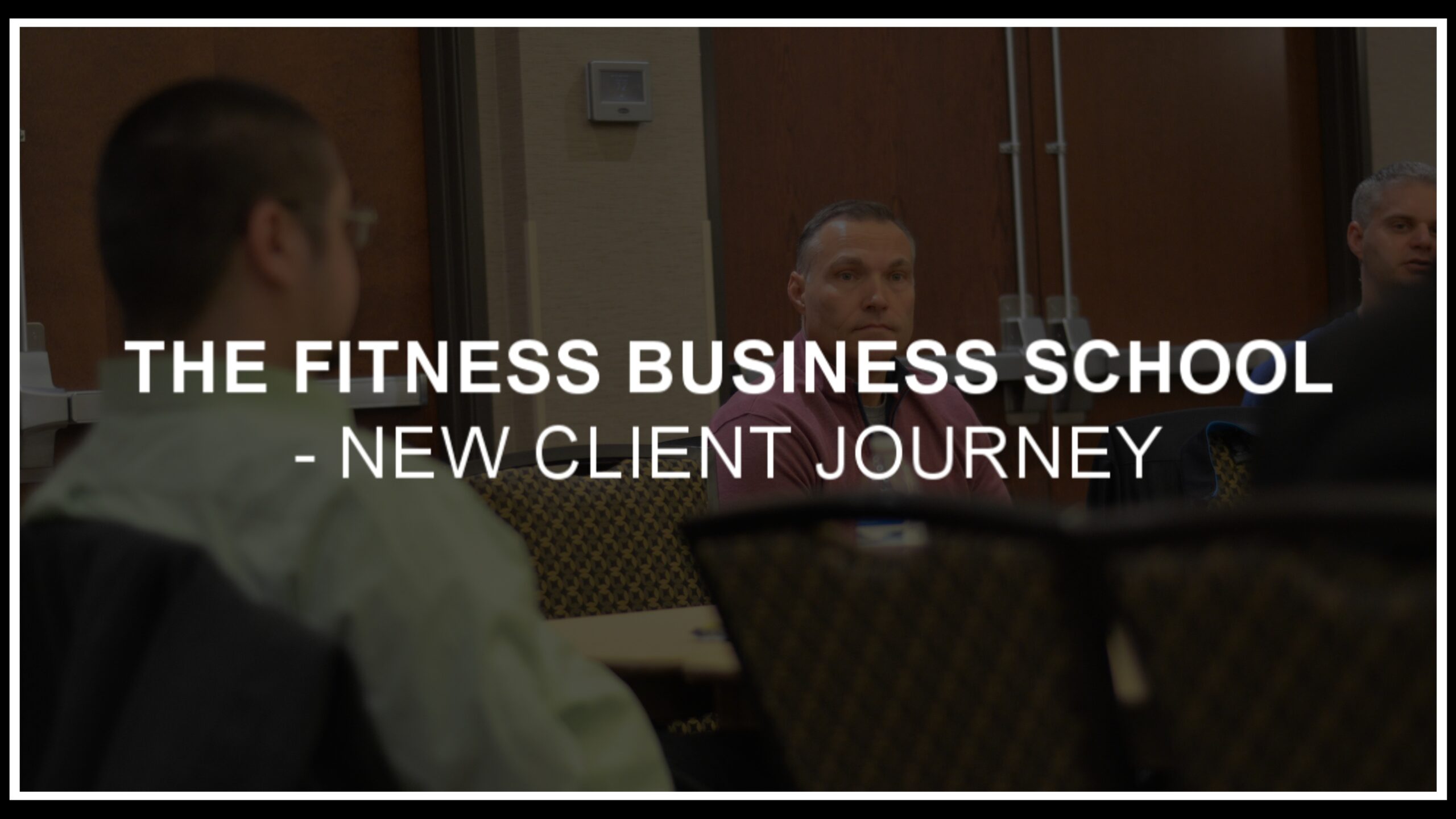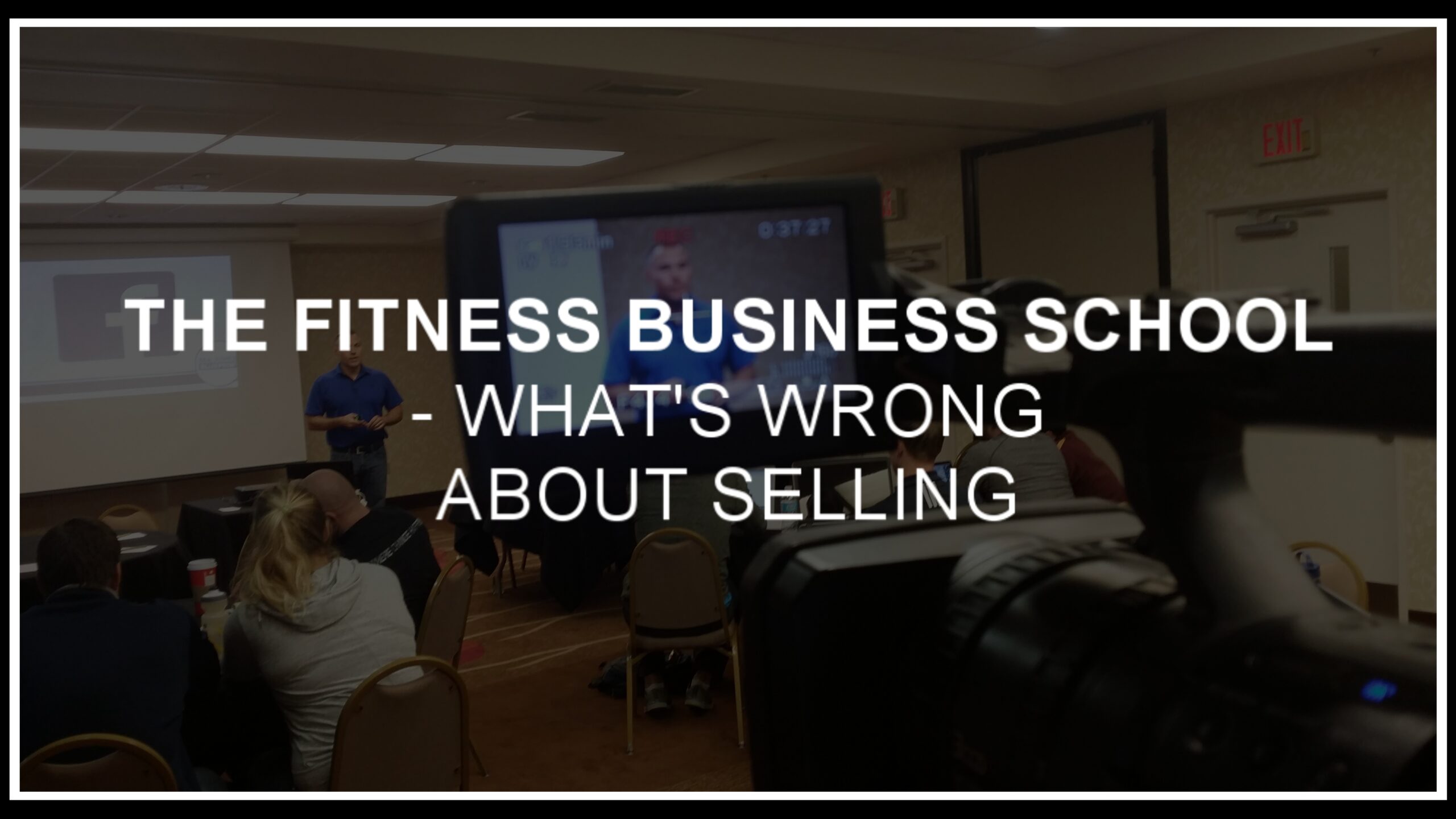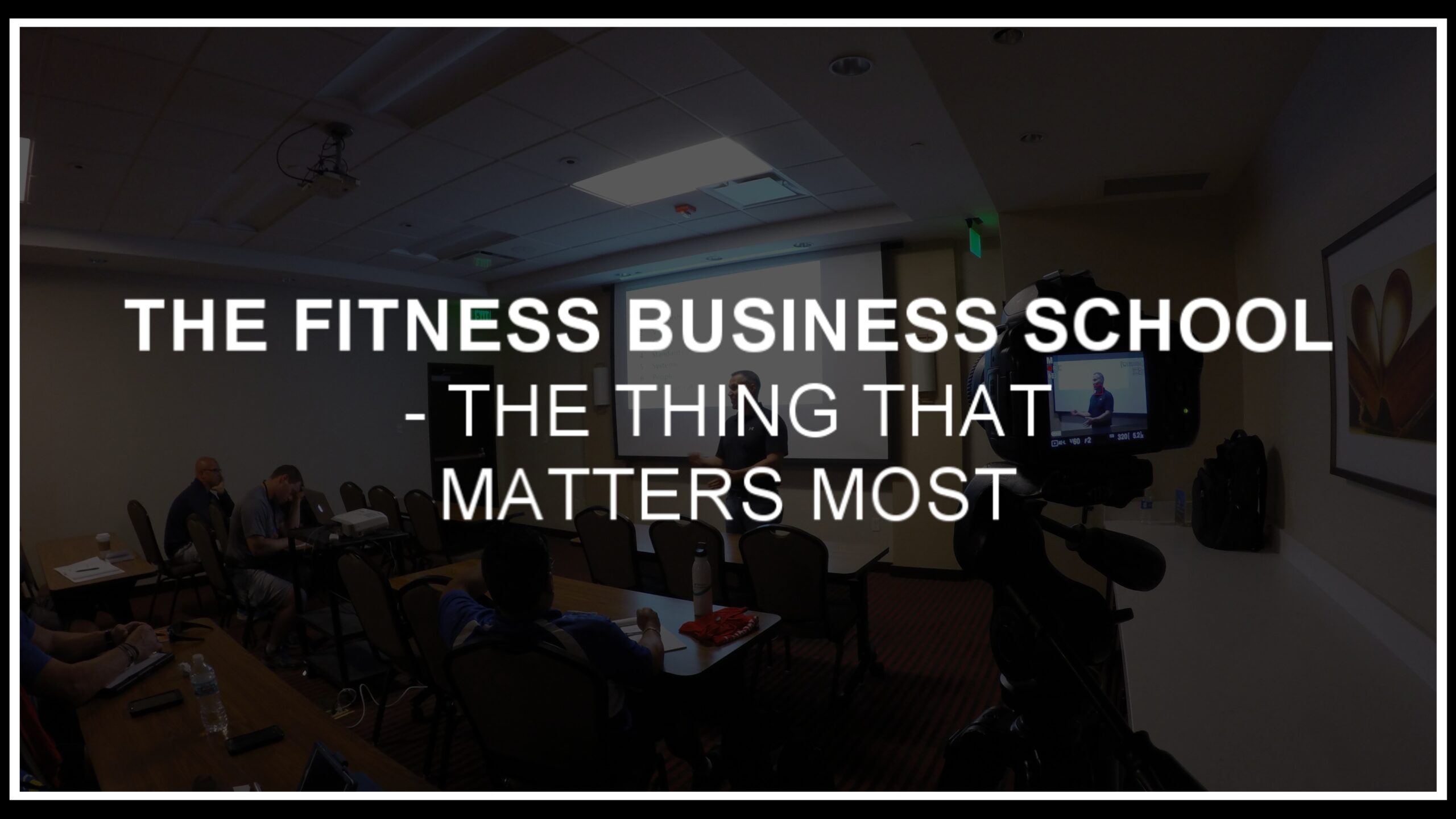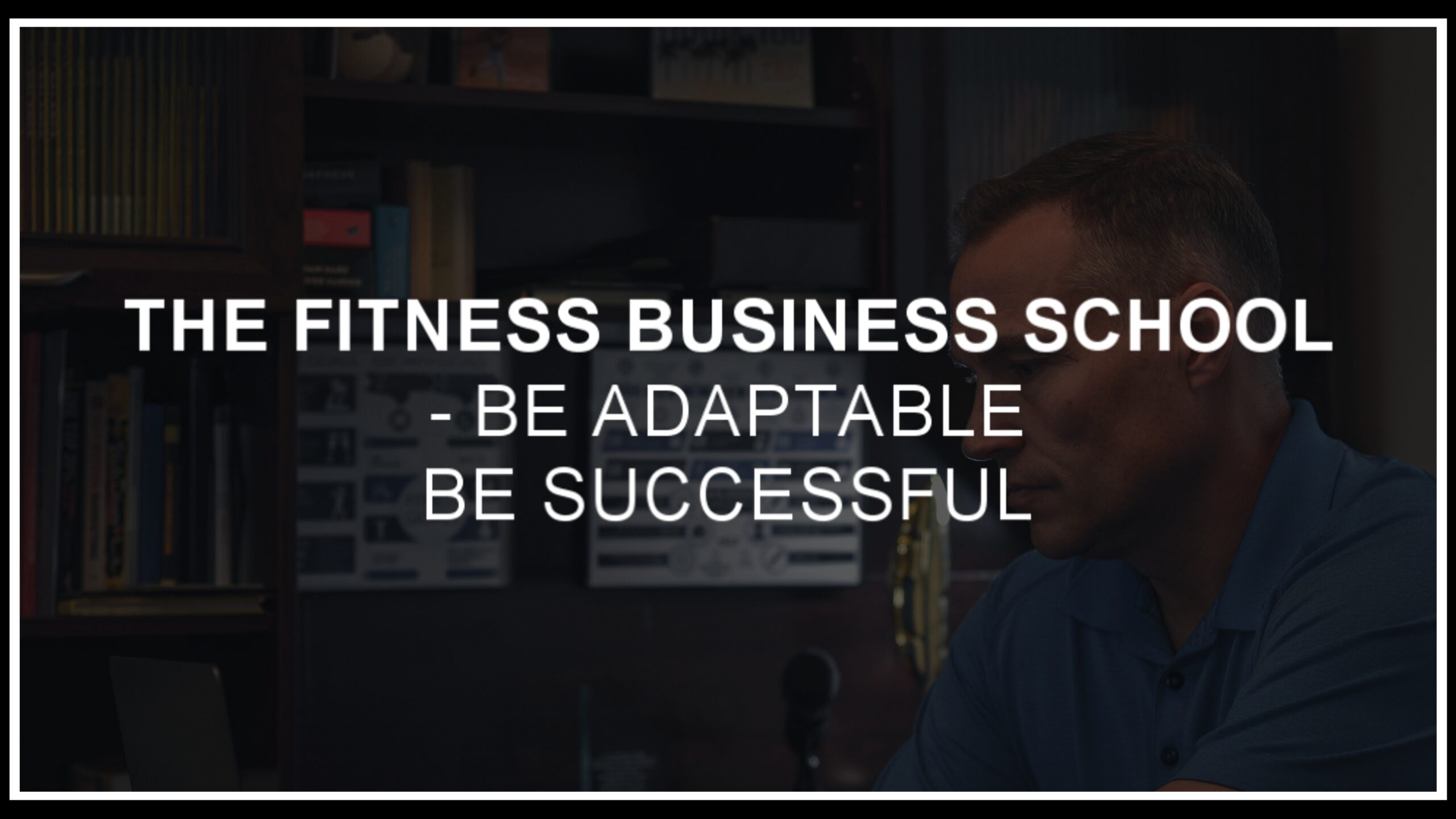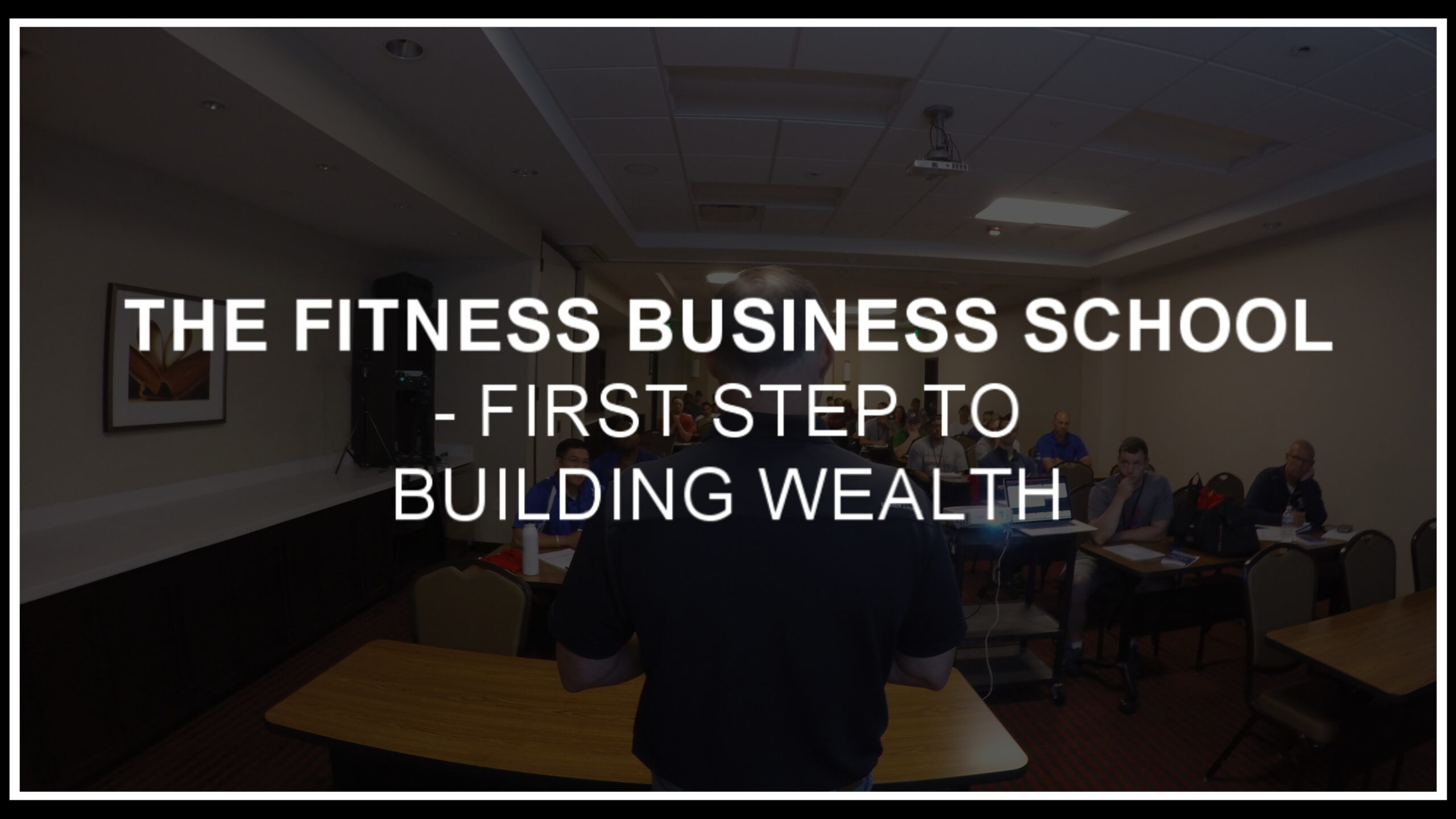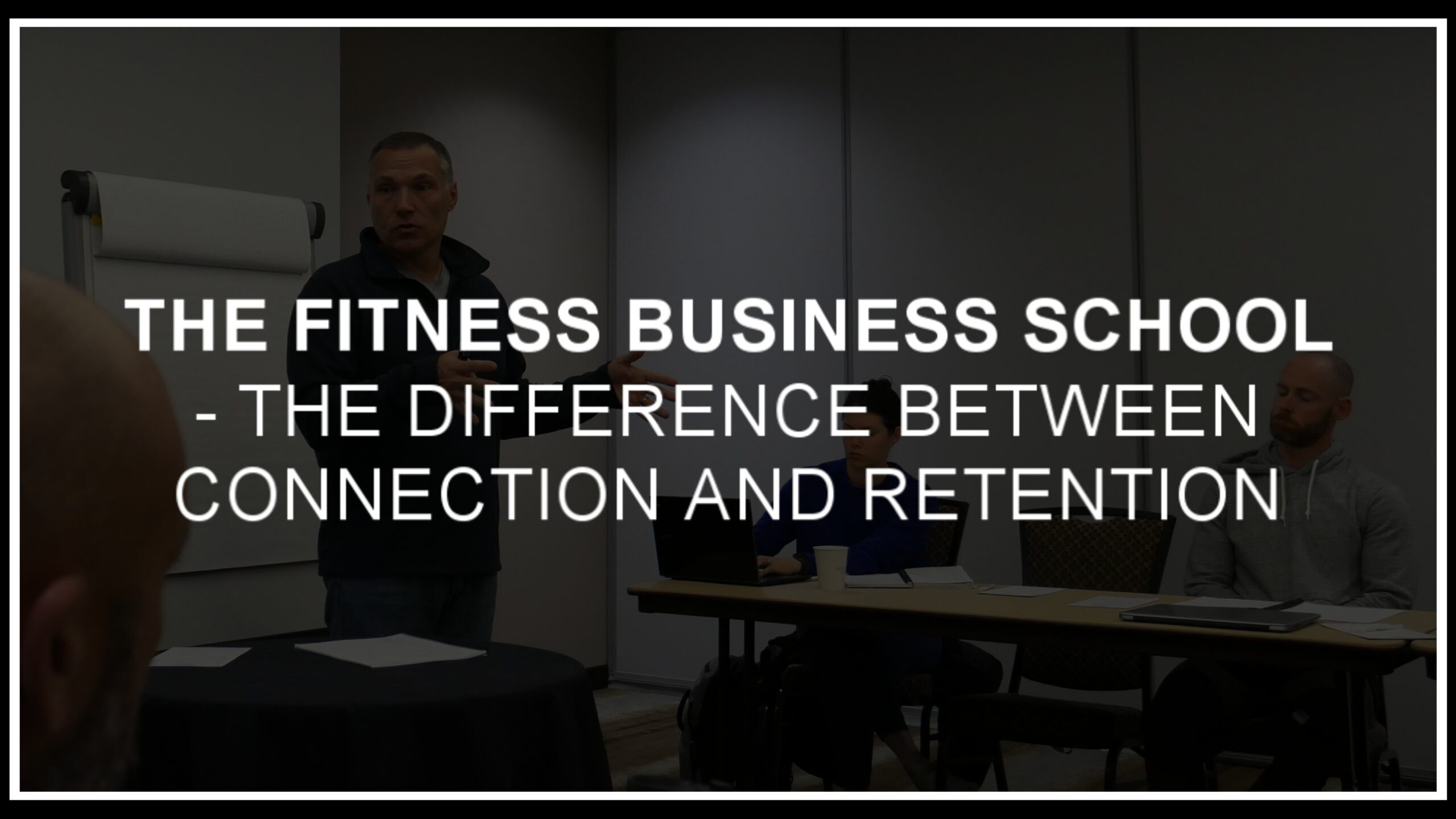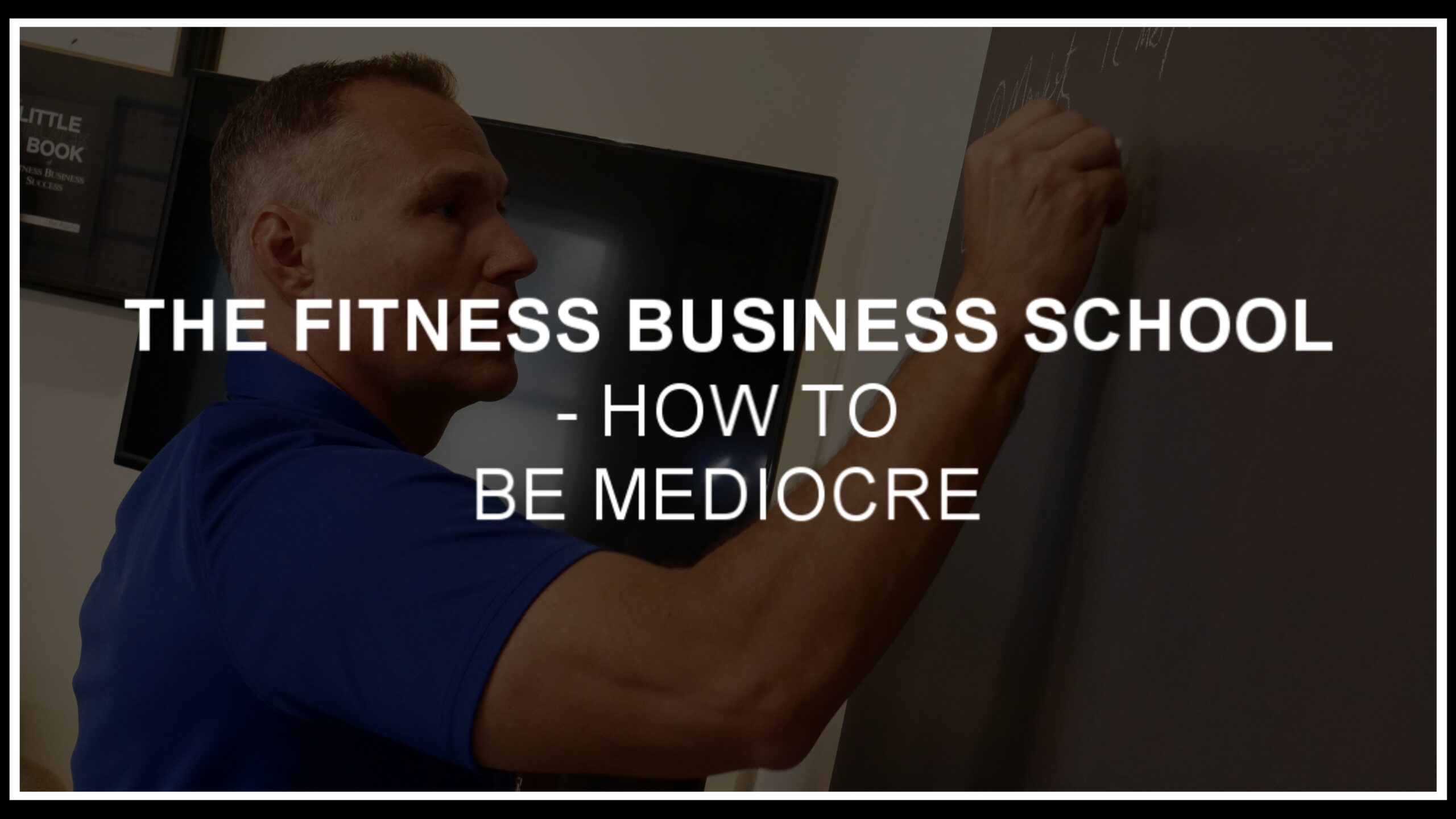Show Notes
- The idea of systems works in nearly any field
- A system is just how you do things – consistently
- Document your activities, leave open for improvement
- Create a “playbook” your staff can reference
- Sales, cleaning, marketing, etc can all have systems
- Systems make your actions easily duplicatable
- Documenting brings consistency and standards
- A playbook must also be coached and practiced
- Systems can documented on video easily
- Your phone or screen capture is all you need
- This is how you build leverage and have freedom in your business
P.S. – 6-Weeks of Coaching…Free.
Get a surge of new clients and revenue over the next 6 Weeks with ZERO FEE and no obligation to continue?
If you’re a current business owner who wants to add 50K or more in annual revenue over the next 12 month, you can Test Drive our coaching program for 6 Weeks with no fee or even an obligation to continue as a way to demonstrate how we can help you grow your business.
No strings attached. No obligation. You get our best coaching & tools…and hopefully, you’ll love it enough that you want to keep working together.
Would you be interested in discussing?
If so, email me here with ‘interested’ in subject line and we’ll set up a chat.
Full Transcript
Hey, Pat Rigsby here and in this episode, I want to talk with you about why you need systems, no matter how big your business is. So let’s get to it.
Welcome to The Fitness Business School podcast – the show for fitness business owners who want to grow their income, increase their impact and improve their lifestyle. Be sure to listen til the end of this episode, because we have a brand new special offer exclusive for listeners. So stay tuned.
If you’re like me, you you’ve kind of always understood the, the word systems as something you needed, but you didn’t always understand how that was gonna gonna benefit you or what, what that actually looked like in a practical sense. And so I wanted to talk with you for a little bit on this episode about how systems fit into your business, what they actually are and how you can start to get in motion in implementing or optimizing systems in your own business. Now, for me, this idea of building systems into what I was doing really originated back when I was a college baseball coach you know, in, in my kind of ongoing quest to, to be better and build a better program. I, you know, I would read biographies of coaches. I would study other coaches. And at the time the kind of leading coach in the college baseball landscape was a gentleman named Skip Burtman at LSU. And he had built a program that ultimately won five national championships. He kind of built this program from the ground up. They weren’t very good when he got there and he was well known for kind of what he called the system like. And so obviously that, that seemed mysterious and like the, the key to success. So I went to LSU and I worked camps at LSU to try to kind of peek behind the curtain and see why they were so good. And obviously, you know, they had great facilities and they had great players. I don’t know that that was the case when he got there though.
But the system really, what I came to find out was just, Hey, this is how we do things. And he was really good at empowering other people to be successful and establishing the culture, establishing the expectations and setting the other people up, whether it be his coaches whether it be his all off field staff, whether it be his players, setting them up to succeed. And that really helped me understand what systems meant. And I came back to my own little program that, you know, had a fraction of the resources and had no tradition or history. And I said, you know what? We need to create our own systems. And so I said about creating a playbook, our way of doing things. And my logic was really simple. I had a $2,000 assistant coaching budget. So essentially my assistant coaches were gonna be people who were you know, kind of high turnover. They were gonna be people who might volunteer and do it because they wanted to be around college baseball and put it on their resume. They might be somebody finishing a, up a degree and sticking around after their playing days. It might be a friend who just, you know, wanted to be part of what was going on. And so for me, the key was, well, how do we not have to start from scratch every year, if we’re gonna have these different coaches coming in and obvious there’s a host of new players coming in.
So I just started to document the way we did things. I just started to document, you know, how we taught, hitting the terminology. We used, how we operated certain drills and practice what, what our signs were in any of the things that we were doing. I just simply documented those and, and, and left it open to improve or adapt as we changed, because obviously things weren’t gonna be static if we figured out a better way to do things would change it. And that became my playbook if you, of my, my kind of book of systems. And so I could hand this off to somebody and they could know the language that we would use. They could know our signs, they could you know, have something to review. So we wouldn’t have to start from scratch from day one. And the thing was, it’s not like, Hey, I’m gonna go do this and install this in 10 different college baseball programs. Like, you know, some people think you need, you only need systems if you’re gonna add multiple locations or if you’re gonna license or franchise. No, I, I mean, my goal was simple is like, how do I make the, the operation, the program we had at the time, more successful, more consistent get people on the same page? Well, it it’s, you know, establishing what we’re about.
So I talked about kind of our championship plan in the first page and talk about the culture and, you know, talk about how we actually operate and what you need to do to be successful and give them a blueprint for that. So, fast forward, when I start my first training business, we had an operations manual, essentially, a playbook, same stuff. This is I mean, this is the attire we wear for training sessions. This is how we set up for a training session. This is you know, when you need to arrive, how long, how long you’re expected to say after what you have to do to document the, the session itself, how we may do an assessment, how we do a sales consultation, all of those things went into that operations manual. And, you know, for me, it was knowing that, you know what, I’m not gonna be the one to deliver every training session. So how do we make sure we’re all pulling the rope in the same direction? Now at that point, I do think my was, well, I want to be able to duplicate this in another spot, but I don’t think that would’ve changed my desire to put that in a playbook like I had with baseball in any way, shape or form.
So the reason I wanted to kind of give you these couple of examples is I, is that systems are not this ambiguous thing where you’ve got this giant playbook that looks like an old telephone book or something like that. It it’s more or less just saying, okay, I wanna be clear about what I want this business to operate like on a daily basis. And how do I set the people up to succeed myself included so that they can move us towards that, or maintain that standard on a daily basis. And it it’s in many cases, just documenting what you currently do and then being open to improving it over time when you find a better way. And so in a very practical sense, like let’s say that you use a specific methodology to do an assessment on new client. Well, you would just document that methodology so that you do it the same every time. And you’re not guessing you’re not you know, you’re, you’re, you’re not having to reinvent the wheel so to speak, but then if somebody else is gonna do it, then they know what they’re doing. They know the checklist to follow, and you have a standard that you can hold them to. Now, one of the other things that I will tell you about a system is the system is only as good as your willingness to coach somebody to execute it consistently.
And so the, the analogy I always looked at is, you know, in the NFL, you know, they give players a playbook, but they don’t just say, well, show up on Sunday and run the plays on this page, this page and that page, no, they practice them throughout the week. And the same thing applies here. You need to practice the systems that you are creating, installing, and, and asking other people to adhere to. Now, the, the fun thing about this in today’s kind of business landscape is I think this stuff’s easier than it’s ever been. I mean, I had 136 page playbook for our baseball systems. And honestly, you know, that that was fine for a guy like me. That really is a reader, but I think most people would’ve learned more effectively, if that would’ve all been on video. And now we all have the ability to create high quality video by using our smartphone. So to create your own kind of system library, really all you need to do is video. You demonstrating a specific process, any task in your business, demonstrating the way that you want it done, and then upload that into some sort of private area. And it can be as simple as uploading it to Google drive. And that serves as your playbook. Doesn’t matter if you are gonna be a small location that has one or two employees, or you’re going to try to scale and have multiple locations or license or franchise eyes, if you approach it that way, and you just video what you’re doing, either on your smartphone or using some sort of screen capture, if it’s something that you’re doing online, now you have a, a, a library of systems and you’re going to be able to operate at a higher level. You’re gonna be a of a scale if you want to. And maybe even more importantly, it’s gonna give you the peace of mind that the other people know what your expectations are because that’s, that’s one of the things that I think a lot of business owners struggle with is they have expectations of others, but they, they, they haven’t been abundantly clear about what those expectations are. And maybe more importantly, they haven’t set the employees, the team members up to meet those expectations by giving them the tools and the coaching.
They need to do it at a consistent level. And this literally is the, the biggest piece of solving that. Now you’re gonna have to coach people to it and hold people accountable. But now you have something to coach too, and hold people accountable too. And that’s how you build a business that, you know, can grow beyond your own shadow. It’s how you build a business that allows you to take the vacations. It’s how you build a business that allows you to step away and pick your kid up at school, or you know, coach their youth baseball or soccer team, and not feel like you’re doing it at the expense of your business’ health. So if you wanna build a healthy, successful, and ultimately scalable business, that allows you to actually behave like an owner and not just a 70 hour a week employee, you need systems. If you’re gonna do it on, on kind of the, the, the smaller scale, the, the process I just walk you through is perfect.
And if you’re just kind of getting some traction with it, that’s perfect as well. Now, if you wanna do it at a higher level we do something internally here in my business that we’re happy to help. I can tell you more about it. It’s called our scale program, and it’s installing all the businesses. You need to build a scalable business in 16 weeks. And the, this is more designed for businesses that are already at probably 15, $20,000 a month or more, and want to keep growing, or, or want to scale to multiple locations it’s been tested. And this whole process has been proven with multiple seven figure businesses. So just shoot me an [email protected] with scale in the subject line. If that’s the direction you want to go, but again, you can certainly start and maybe even finish with just that kind of simple video library uploaded into Dropbox or Google drive, and then you’ll have a systems kind of online operations manual. That’ll help you build the business that You want.
Thanks for listening to this episode of The Fitness Business School. Before you go, I have a quick announcement. When I first connect with a fitness business owners, they almost always asked me, how can I get more clients or make more money? Well, I have an exclusive offer for you, and it’s gonna help you do just that. As a listener of this show, you can test drive our business growth accelerator coaching program for FREE.
BGA is a one of a kind program where you get done-for-you marketing tools and a level of coaching that is unmatched in our industry to help you attract more qualified prospects and convert them into paying clients, ultimately making you more revenue and personal income.
Imagine having every tool template ads, script you need all proven to convert in, ready to use. Plus you have access to over 10 weekly live video coaching sessions to help you with everything from dialing in your ads, to mastering your mindset. You get all of this and more when you joined BGA and to help you succeed, I’m going to do something I’ve never done before. I’m going to let you test drive BGA at zero cost.
If it delivers for you in the way that I expect – it more than it pays for itself, and you’ll probably want to stay. If not, you’re out nothing and have a library of proven tools and resources to keep.
To take advantage of this special offer. Just email me [email protected] and put test drive in the subject line, and I’ll get you all the details.


